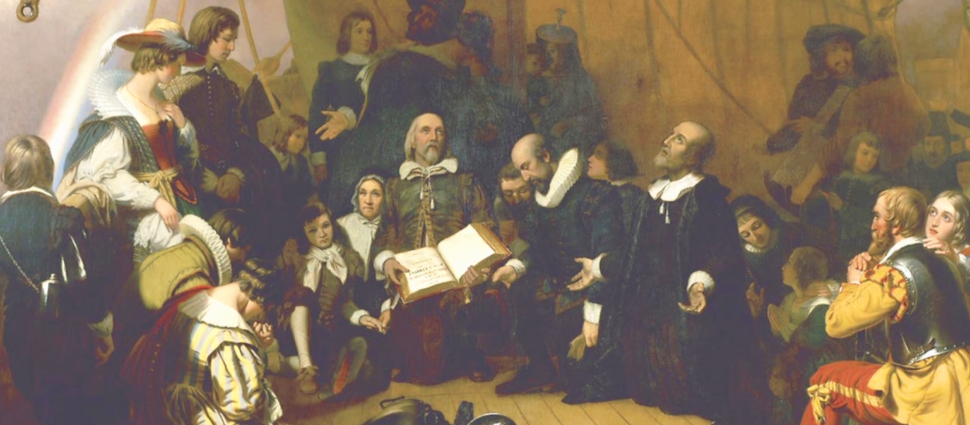Book Review: Puritanism and Natural Theology

Wallace Marshall, Puritanism and Natural Theology (Eugene, OR: Pickwick Publications, 2016), 144pp.
Wallace Marshall’s Puritanism and Natural Theology ably demonstrates that Puritanism in general not only theoretically developed but pastorally utilized a robust natural theology. More provocatively, he shows that they saw natural theology as foundational to supernatural theology with more kinship to medieval scholasticism than the Reformers allowed. Marshall challenges notions that the Puritans either had little time for natural theology or attributed to it a relatively minor role. He also contests the contemporary Reformed consensus that the Puritans saw the Scripture alone as the “principle for knowing theology” (principium cognoscendi theologiae). With a plethora of primary resources at hand, Marshall rightly argues that this consensus should be left behind.
Marshall proceeds with the common understanding that natural theology refers to “all religious knowledge that is accessible through the use of reason independently of supernatural revelation.” Indeed, the Puritans believed that God clearly evidences himself to all mankind through the created order. However, Marshall further maintains that the Puritans used reason and theistic proofs to “demonstrate the existence and attributes of God” to both unbelievers and believers (chap. 1). Thus, Marshall deals extensively with Puritan apologetics showing that they employed natural theology as evidentialists.
The “essential components” of this natural theology concerned arguments for “the existence of God, the human duty of loving and living for God, natural law, divine providence, and the immortality of the soul” (chap. 5). Regarding their defense of providence, Marhsall treats at length the Puritan use of natural theology to address theodicy for the vindication of a sovereign yet good God in a world filled with evil and injustice (chap. 6). Richard Baxter, for example, extensively addressed theodicy through reason and, in the process, even made an appeal to a plurality of worlds populated by a myriad of unfallen righteous creatures.
The Puritans believed that natural theology was useful for helping believers struggling with remaining unbelief (through practical and speculative atheism), engaging unbelievers, and confronting skeptics (chap. 2). Some denied (e.g. William Twisse) or limited (e.g. William Gurnall) the usefulness of rational evidences for Bible-informed Christians, but most affirmed their great value to combat remaining atheism and strengthen existing faith. The Puritans also believed that we should engage unbelievers with reason as a foundation to receiving special revelation (e.g. John Eliot’s ministry to New England Indians). Finally, natural theology confronted skeptics (e.g. seventeenth-century Deism and Atheism) with proofs for God’s existence and the divine nature of Scripture, though with limited success expected against such resistant minds.
The Puritans were convinced that reason could be employed even though the fall diminished its intellectual power and inclined it to suppress truth (chap. 3). Still, while nothing in Christianity is “contrary” to reason, some mysteries are “above” it (vs. Socinianism) and God cannot be fully comprehended with it. Thus, the Spirit with the written Word overcomes and corrects limited reason to reveal otherwise unattainable truths. Here, Marshall could have done more to interact with the Puritan emphasis (in continuity with Calvin) on the noetic influence of sin and its corruption of reason and in connection with Puritan exegesis of key passages (e.g. Rom. 1:18-21, 8:7; 1 Cor. 2:14).
With their embrace of the necessity of Scripture, the Puritans knew the limits of natural theology, which could not reveal truths such as the Trinity or that essential to the gospel (chap. 4). Most importantly, natural theology could not bring people to a saving relationship with Christ who alone can forgive convicted sinners. As John Owen noted, we can “know God by the light of nature” but “cannot come to God by that knowledge.” In this way, while natural revelation provided a way to truly know God, special revelation took priority over it.
Interestingly, a minority believed that natural revelation could even be sufficient for salvation (e.g. Richard Baxter). Indeed, the Westminster Confession (10.3) argued for the salvation of regenerated “elect infants dying in infancy” never hearing the gospel and other elect individuals “incapable” (mentally) of understanding it. Individuals such as Matthew Henry went the next step in consideration of those who never hear the gospel: “[W]e cannot say, it is impossible for any of them, though they live up ever so closely to the light they have, to be saved by Christ they never heard of.” Yes, you read that correctly. Some Puritans believed (contrary to the Westminster Confession) that the light of nature could be sufficient for salvation in Christ in certain circumstances.
In the light of his findings, Marshall rightly suggests that eighteenth-century Enlightenment rationalism had more continuity with the Puritan employment of reason than originally thought. Accordingly, John Locke’s (see Marshall’s helpful appendix on him) Reasonableness of Christianity (1695) also did not radically depart from what the Puritans considered a legitimate use of reason in relation to special revelation. Still, Marshall qualifies the Puritan approach with the clear assertion, “Although the Puritans were rational theologians, they were emphatically not rationalistic.”





